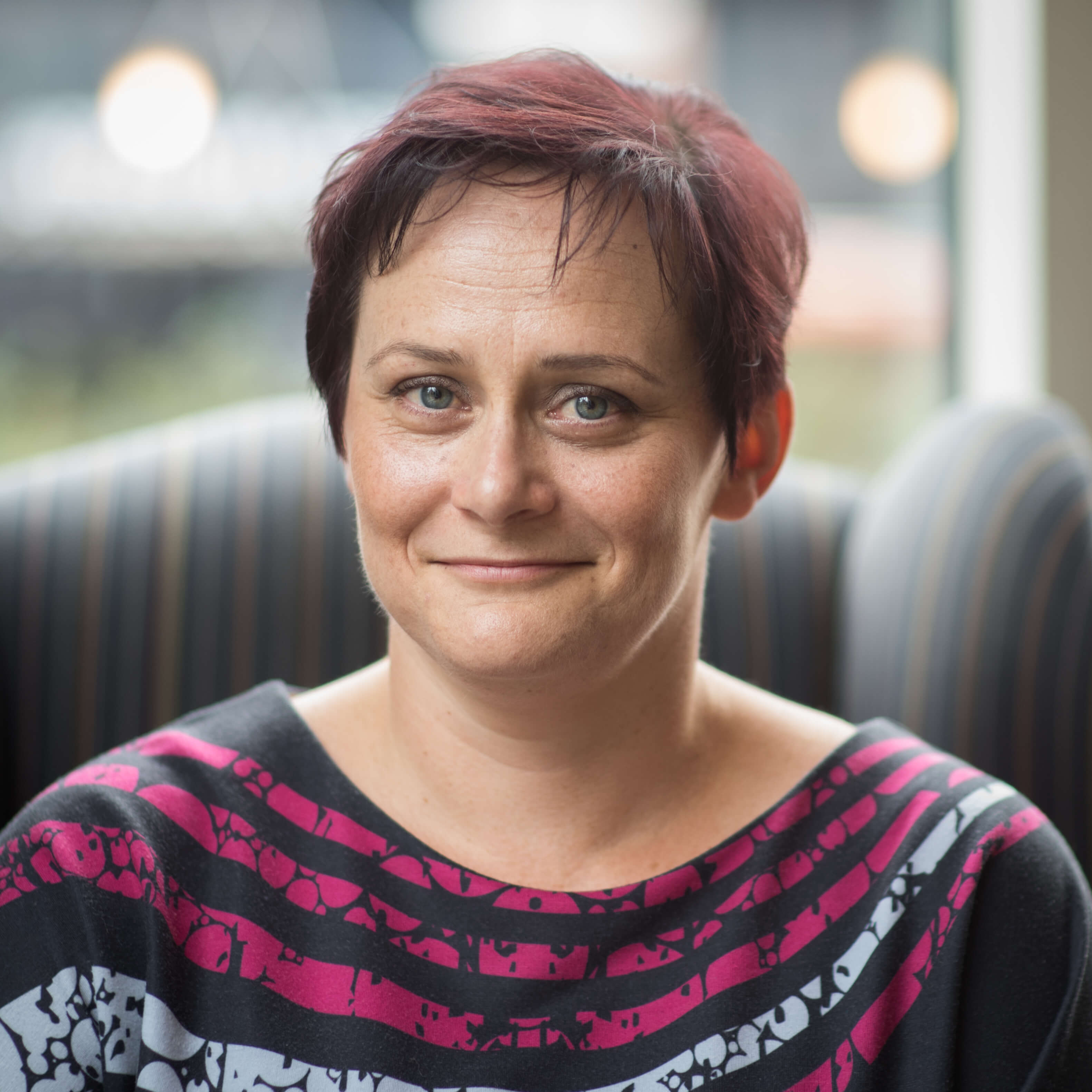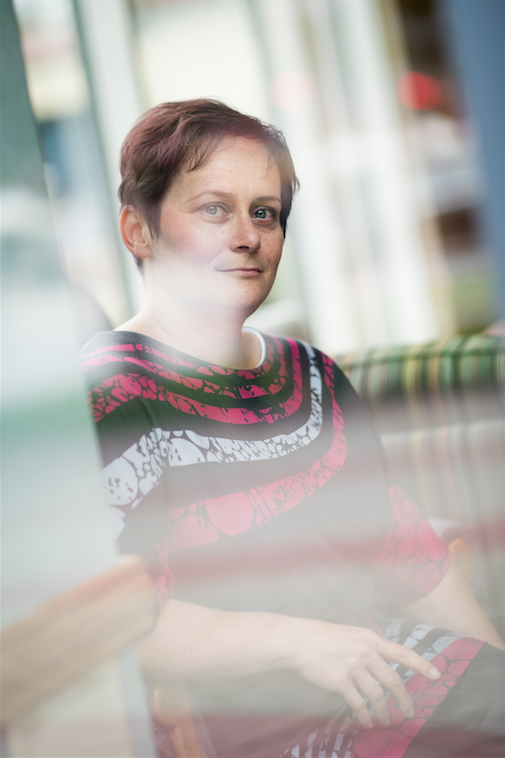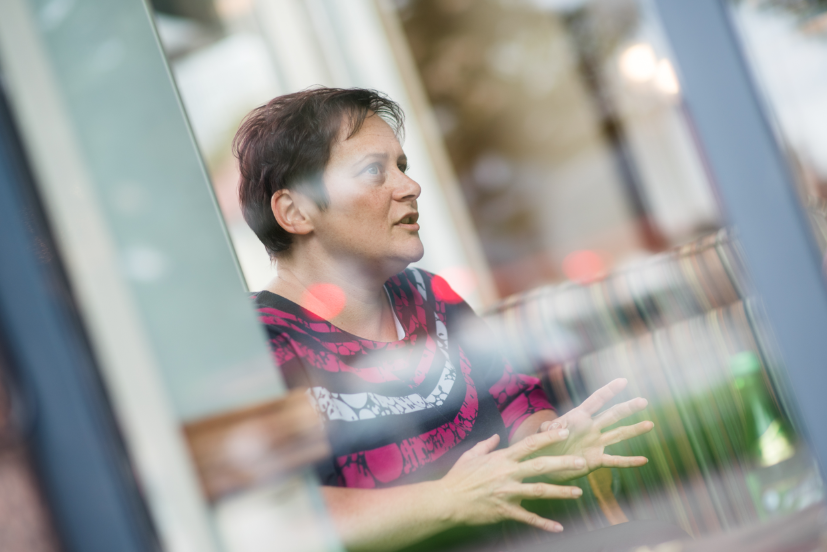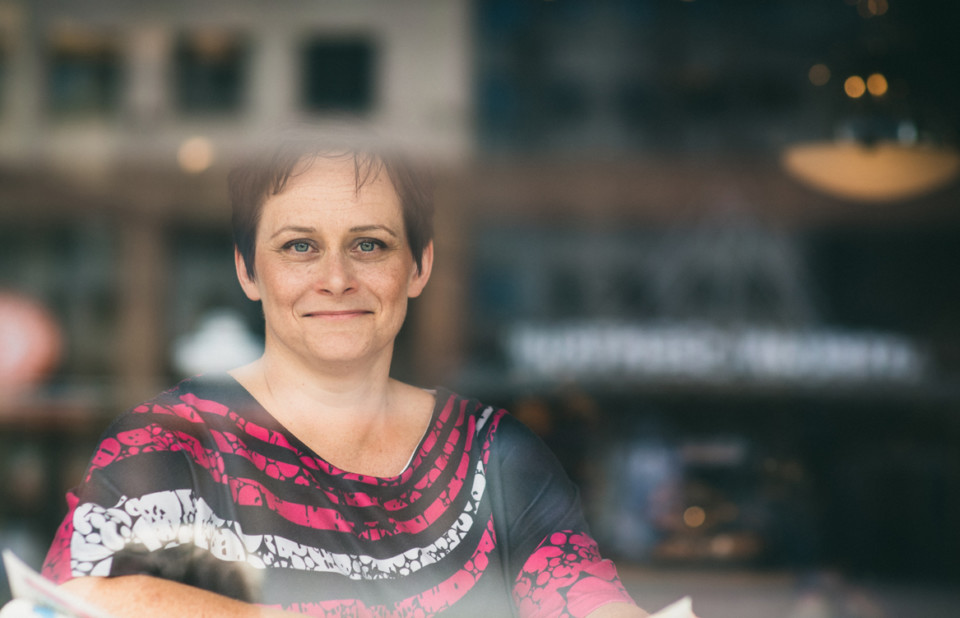A N I A
Warsaw | 2017

A N I A
City — Warsaw
Age — 45
Love life — Single
Profession — Teacher in Talent Management, Personal Development and Self-Efficiency, working on her PhD in Management Science (thesis: people with disabilities can function just as well in a business environment as people without)
Years in Warsaw — All her life
Location — Caffe Néro
T H E W A R S A W S T O R I E S
‘I ALWAYS
THOUGHT
I HAD
LOTS OF TIME’

- What makes you really happy?
“For a very long time I was struggling with myself and complaining about my life and job. But at age 31 I was diagnosed with Multiple Sclerosis (MS). That changed me dramatically. I made almost a hundred percent turnaround. I always thought I had lots of time, but life suddenly became too short. So I started thinking about what I really wanted to do with my life. I left my Public Relations job and started to teach talent management, personal development and self-efficiency. I love it, it’s not just my job anymore, it’s my life. I’m also doing a PhD in management science. Getting the MS diagnosis was difficult, but it also made me look for small things that give my life sense and make me happy. Like drinking coffee, meeting friends, doing jazz dance or seeing a sparkle in the eyes of the people I teach. But you have to realize that there’s happiness in those moments. It’s not like there’s a mountain to climb and you will only find happiness once you reach the top. No, every single step gives you happiness. So don’t waste your time, because you never know how much time you have. Do something good with your life, because you don’t know how long the good part will last.”
- What is your best personality trait?
“That I’m an optimist. Shit happens, but don’t focus on the shit, focus on the good things in your life. I am also a maximizer: I give it my very best and very often still think I could have done better. I’m also empathetic, but that is a very difficult personality trait to have. When the energy level in a room is low or there are bad emotions, I feel all of it. Friends feel better when they’ve talked to me about their problems, but their negative emotions stay with me. I need to learn how to use this talent. I’m working on putting boundaries between me and the people around me. The first step is learning to say no.”
- What is your biggest struggle in life?
“That’s easy. My health. I’ve been struggling with MS for fourteen years now. I know myself with this sickness at this moment, but it’s difficult that I don’t know how it will progress. I’m worried. A few years ago I was walking without a stick, now I need a stick. Shit happens, so I accept it.”

- What is the biggest lesson life has taught you so far?
“I strongly believe that all those difficult moments happen for a reason, so I can learn something about myself from them. And that process is great! But I need to be open to recognize the lesson there, negative emotions would close my mind. I could be sad about the fact that I have to use a stick, or I could admit the stick gives me more freedom. Everything that is happening with my body teaches me humility, it’s very difficult. For my love life as well. I am the person with the history and the unknown future. But this is my life, this is me. Although I’m single, I feel completed, and I have lots of wonderful people around me. There are moments when it’s not easy, especially when my friends are with their families and I am alone. It would be nice to have someone who cares for me. Another life lesson is that it is okay to ask for help. I’m not Superwoman. I don’t need to do everything by myself, but I do need to ask. That is not easy either, but I’m getting better.”
- What is your biggest disappointment in life?
“That I can’t have children. I really wanted them. In the beginning my illness got in the way and now I can’t have them anymore. So. Yeah. Fortunately my family life and work offer many situations where I have lots of children around me.”
- What is the best thing that ever happened to you?
“There are lot of best things. One of them is that last year I was prescribed a drug that alleviates the symptoms of MS. I get it for free, for the rest of my life. Three days after the first shot I could literally jump again. I was so happy! Maybe it’s hard to understand for people who don’t have MS, but for me it’s Christmas every day since I use this medicine.”
- What is the best advice that someone ever gave you?
“That is the advice from my friend Renata: be yourself. I was trying to live up to someone else’s expectations and it didn’t feel right. Renata said, ‘Come on, be yourself! If you don’t feel good about it, don’t do it, do only the things that feel good deep down inside of you.’ When your gut tells you something is wrong, it’s wrong. Your body never lies, trust it. But people and especially young women tend not to listen to themselves. They do things to please others, give a piece of themselves to everyone. What for? You’re dividing your energy, but you only have one life.”
- What do you regret most in life?
“A few relationships in which I invested both myself and my time, that sucked up all of my emotions and energy. My self-esteem suffered, because I was trying to fit a mold. When I became aware of this pattern of behavior, I started to break it. I need to be myself all of the time and in every situation.”
- What is your ultimate goal or biggest dream?
“My biggest dream has always been to have a nice family and to be in good health. With MS you can still live in good health. And I want my family to be happy and healthy. I also have lots of small goals, like finishing the PhD and be in good enough shape to fulfill small everyday tasks. I’m taking regular day-by-day small steps to have a good life.
- What does Warsaw mean to you?
“Warsaw is the place where I was studying, the place where my friends are, the place where I can have some fun. It’s a place of opportunities. It’s a fast city. In Warsaw, people drive their cars the fastest of all cities of Poland. They’re contantly in a hurry. There are lot of traffic jams and cars, and I love that energy! It means you sometimes spend a lot of time in your car, but I just listen to an audio book. Do something with the time you have left! The city is also very important to me because I feel part of the history, which is still alive here. It gives me a sense of my roots. I think that for women life here is harder than in other Polish cities. They’re always hurrying between their jobs and their home. It’s so fast-paced, there are so many opportunities and things to do. They want to cope with family life and their job at the same high level. They do much more than the men. The women are very, very hard working and well-organized. Well, at least they try to be.”
Photos by Marta Ankiersztejn

